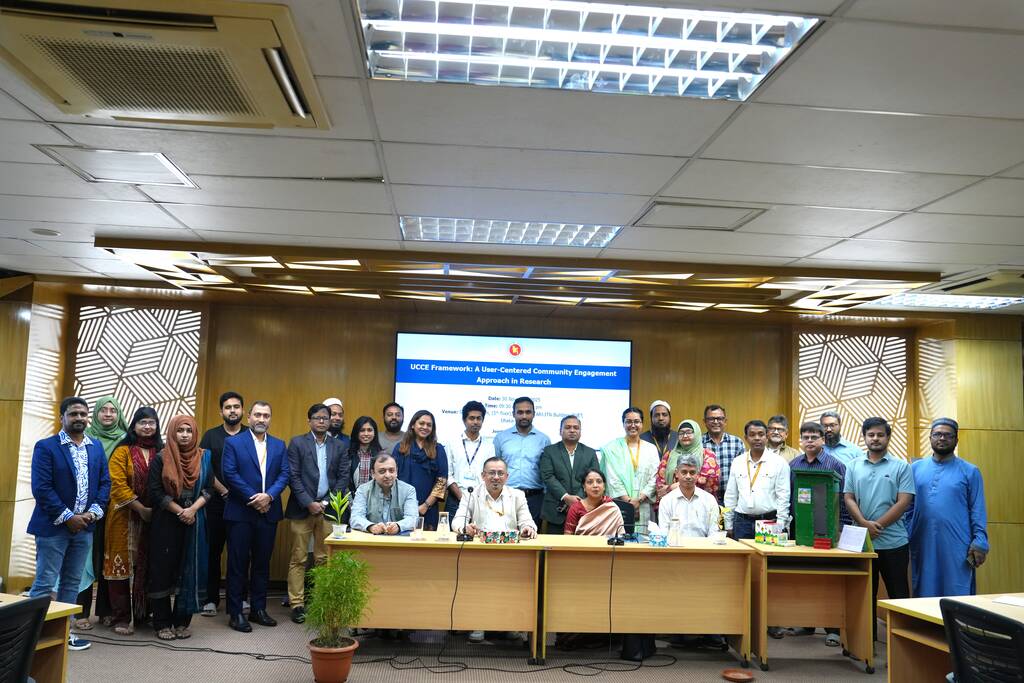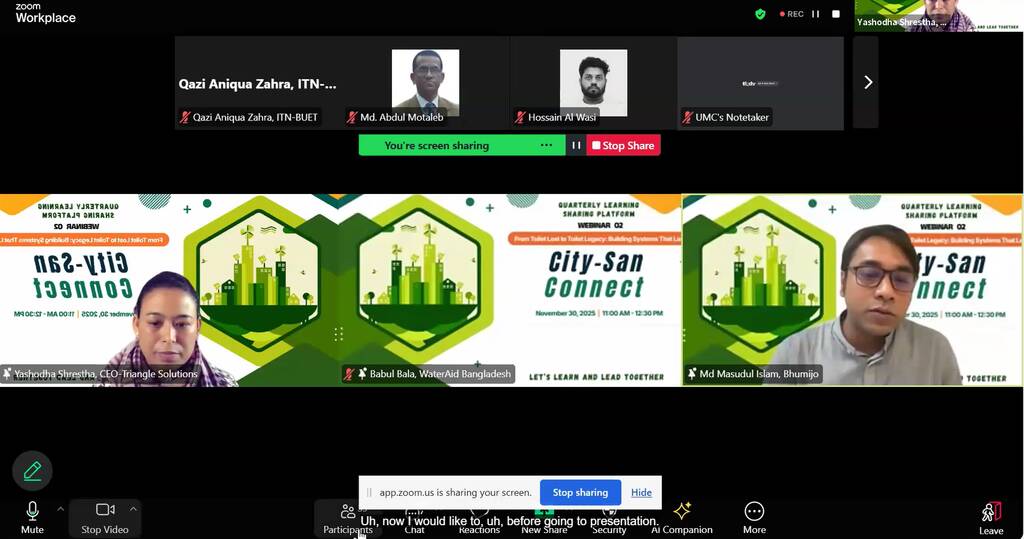In preparation for the upcoming 10th World Water Forum in Indonesia, a collaborative effort led by Dasra, South Asia Consortium for Interdisciplinary Water Resource Studies (SaciWATERs), and the Women for Water Partnership (WfWP) convened experts and stakeholders in a webinar titled ‘Capacity Building for Gender-Inclusive Disaster Risk Reduction’ on 4th April 2024.
The event aimed to showcase best practices and insights on disaster risk reduction through a gender-sensitive lens. Experts from various national and international organisations, including Scaling City Institutions for Asia and India (SCI-AI), Water Aid Bangladesh, National Institute of Urban Affairs (NIUA) India, Global Water Partnership South Asia (GWP-South Asia), and ITN-BUET were geared up to address critical issues surrounding disaster risk reduction and gender issues.
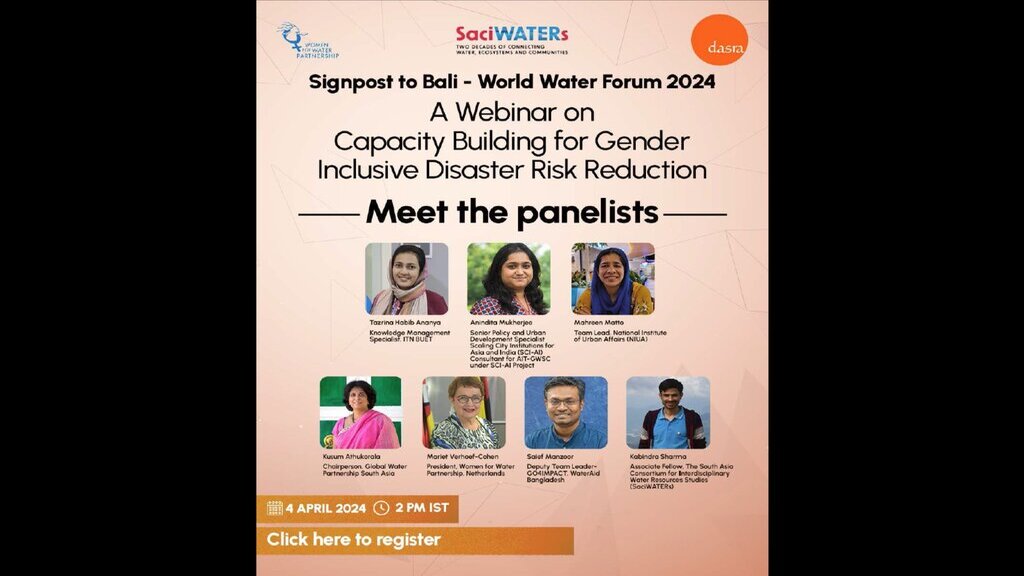
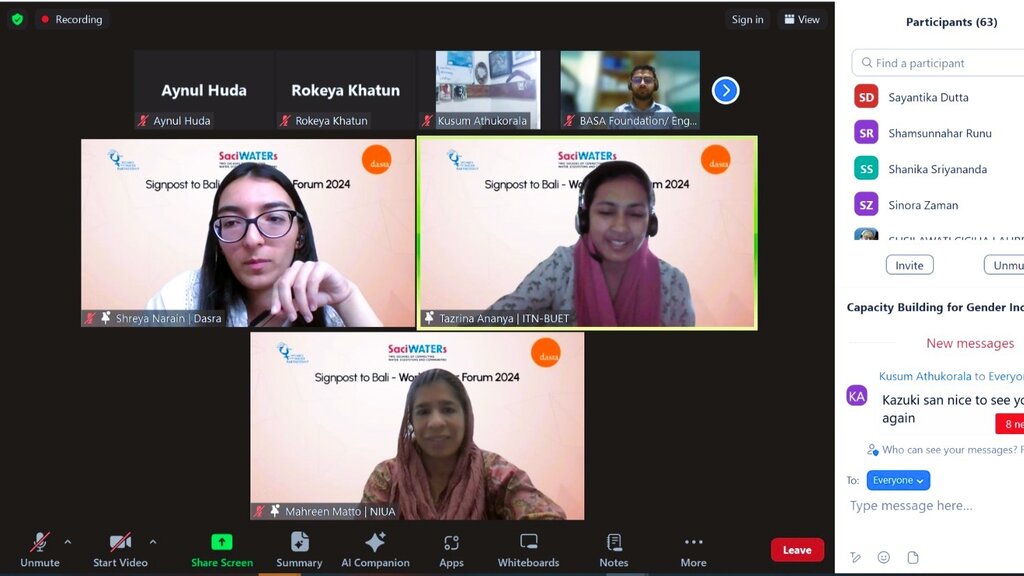
The event also underscored the importance of capacity building across stakeholder groups for effective emergency response on which Ms. Tazrina Habib, Knowledge Management Specialist of ITN-BUET, delivered a technical presentation.
Ms. Habib, stressed the crucial role of addressing gender-specific vulnerabilities in Disaster Risk Reduction (DRR) efforts, particularly concerning access to WASH (Water, Sanitation, and Hygiene) resources. She initiated by illustrating the connection between gender dynamics and DRR, underlining the necessity of integrating gender considerations into capacity-building endeavours.
She elaborated on ITN-BUET’s relevant initiatives, including the development of a “Training Manual on Gender Inclusion in WASH Services” and a “National Compendium of WASH Technologies for Disaster Response.” These initiatives aim to enhance the capacity of government officials and local personnel to recognise the intricate relationship between DRR and gender issues. She underscored the significance of incorporating local knowledge and resources into capacity-building efforts and emphasised the importance of empowering women in decision-making processes to increase community resilience.
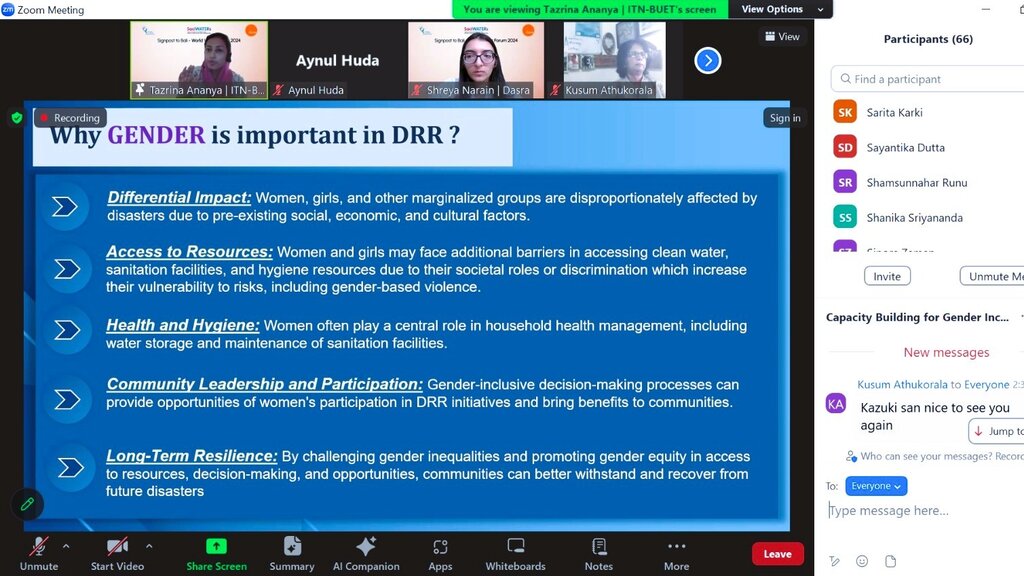

Mr. Kabindra Sharma from SaciWATERs delivered closing remarks, summarising key takeaways. All the panelists echoed that disaster resilience in sanitation relies on local knowledge and capacity building along the sanitation value chain. They emphasised tailored plans and infrastructure and urged for comprehensive frameworks integrating planning, preparedness, and mitigation, alongside inclusive initiatives involving men and women for equitable resilience. The recommendations from the webinar will guide and shape the discourse and argument at the 10th World Water Forum to be held this month in Bali, Indonesia.
Overall, the webinar provided a valuable platform for advancing gender-inclusive disaster risk reduction strategies, fostering insightful discussions, and knowledge sharing among participants. Details about the event are available at https://www.linkedin.com/posts/dasra_snippets-from-south-asia-regional-consultation-activity-7193149313491910656-vUyC?utm_source=share&utm_medium=member_desktop



